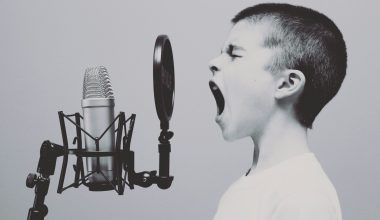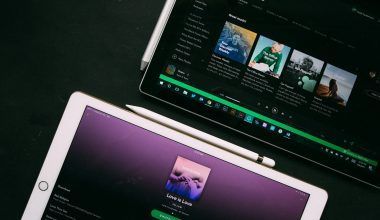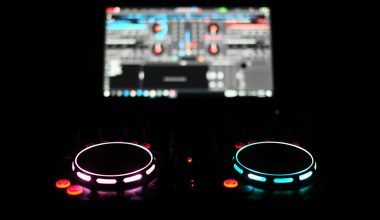What is an EP in Music?
Ever wondered, “What does EP mean in music?” Don’t worry; you’re not alone. Many people come across this term when browsing new releases or hearing artists talk about their work. An EP is short for Extended Play, a format that falls between a single and a full album. It’s not too short like a single, and it’s not as long as an album. It’s just the right length to give listeners a taste of an artist’s music.
Think of an EP as a mini-album. It usually has around 4–6 songs, lasts 15–30 minutes, and gives artists a chance to share their music without the time or cost of creating a full album. If you’re an artist or just a music fan, understanding EPs can open up a whole new appreciation for music releases.
Let’s dive deeper into the world of EPs to see why they are so popular in today’s music industry.
What Does EP Stand for in Music?
The term EP stands for Extended Play. It got its name back in the vinyl record days, when records were categorized by the number of songs they held. Singles had just one or two tracks, albums had eight or more, and EPs were somewhere in the middle.
Think of it like Goldilocks and the Three Bears. The single is too short, the album is too long, and the EP is just right. The EP is designed to give you enough music to enjoy without overwhelming you or leaving you wanting more.
Why Do Artists Release EPs?
So, why would an artist release an EP instead of a single or an album? Here are some reasons:
- It’s Affordable: Making a full album can be expensive. Recording studios, mixing, mastering, and promotion add up quickly. An EP is a cost-effective way for artists to share their work.
- Perfect for Experimentation: An EP allows artists to explore new styles or themes. If they’re unsure how their audience will react to a new sound, an EP is a safe way to test the waters.
- Builds Excitement: EPs are often used to keep fans engaged between albums. They act as a teaser, building excitement for the artist’s next big project.
- Focus on Quality: With fewer songs to worry about, artists can focus on making each track in the EP the best it can be.
EP vs. Album: What’s the Difference?
While an EP and an album both contain multiple songs, they are not the same. Here’s how they differ:
| Feature | EP | Album |
|---|---|---|
| Length | 15–30 minutes | 30–80 minutes |
| Tracks | 4–6 songs | 8–12 (or more) songs |
| Purpose | Short showcase | Comprehensive project |
| Cost to Produce | Lower | Higher |
An EP is like a quick introduction to an artist’s work, while an album is a deep dive into their musical journey.
How is an EP Different from a Single?
A single is just one or two songs. It’s like a bite-sized snack. An EP, on the other hand, is more like a small meal. It gives listeners a fuller experience, showcasing a variety of tracks without being as lengthy as an album.
Singles are often used to promote one specific song, while EPs give artists room to explore multiple ideas or themes.
How Long is an EP?
An EP typically lasts between 15 to 30 minutes. It’s short enough to hold your attention but long enough to leave a lasting impression. This length makes EPs a great choice for artists who want to share more than a single song but aren’t ready to release a full album.
History of EPs: Where Did They Come From?
EPs date back to the vinyl record era in the 1950s. Back then, records were categorized by size and the number of songs they held. Singles were small with just one or two songs. Albums were larger and contained more tracks. EPs were introduced as a middle ground, offering a few extra songs without taking up the space of a full album.
In the digital age, EPs have become even more versatile. Artists now release them on streaming platforms like Spotify and Apple Music, making them accessible to a global audience.
Benefits of Releasing an EP
Here’s why releasing an EP can be a smart move for artists:
- Affordable Production: Recording 4–6 songs is less expensive than creating a full album.
- Easier Marketing: Promoting a short project is simpler and more targeted.
- Engages Fans: EPs keep fans excited between album releases.
- Flexibility: Artists can explore new styles or themes without committing to a full-length album.
For fans, EPs are a treat—a quick, enjoyable way to discover new music.
Iconic EPs in Music History
Some EPs have left a lasting impact on the music industry. Here are a few famous examples:
- The Beatles – Magical Mystery Tour: A groundbreaking EP that became a cultural phenomenon.
- Billie Eilish – Don’t Smile at Me: A debut EP that introduced Billie to the world and showcased her unique style.
- Arctic Monkeys – Five Minutes with Arctic Monkeys: This EP was a stepping stone for the band’s rise to fame.
These EPs show how powerful the format can be for artists, whether they’re just starting out or already iconic.
How to Create Your Own EP
If you’re an artist thinking about releasing an EP, here’s a simple guide to get started:
- Plan Your Theme: Decide what story or message you want to share with your EP.
- Write and Record: Create 4–6 tracks that fit the theme. Use professional tools or services like AI mastering to polish your sound.
- Design Cover Art: Eye-catching artwork is essential for grabbing attention.
- Distribute Your EP: Platforms like Deliver My Tune can help you release your EP to major streaming services.
- Promote Your Music: Share your EP on social media, create music videos, and engage with your fans.
FAQs About EPs
Q: Can an EP have 3 songs?
A: Yes, but it’s uncommon. Most EPs have 4–6 songs, but some shorter EPs exist.
Q: Do EPs make money?
A: Absolutely! With streaming and sales, artists can earn revenue from EPs, especially if they’re well-promoted.
Q: Can an EP become an album?
A: Yes. Some artists expand their EPs into full albums by adding more tracks.
Why EPs Are Perfect for New Artists
For new artists, releasing an EP is like introducing themselves to the world. It’s a manageable way to showcase their talent, build a fanbase, and learn about the industry. Plus, fans love discovering fresh music without committing to a full album.
The Future of EPs in the Music Industry
As music consumption continues to evolve, EPs are likely to remain a popular format. They offer a balance of creativity and practicality, making them ideal for both artists and listeners.
With streaming platforms making distribution easier than ever, EPs have become a go-to for artists looking to connect with their audience.
Final Thoughts: What Does EP Mean in Music?
Understanding what EP means in music gives you a better appreciation for this versatile format. Whether you’re an artist planning your next release or a fan looking to explore new music, EPs are an exciting part of the musical landscape.
So, the next time you see an EP release, give it a listen. It might just become your new favorite collection of songs!
Related Articles:
For further reading, explore these related articles:
- How to Become a Successful Music Artist in India in 2024?
- Promo Cards on Spotify: A Game Changer for Artists
- Understanding ISRC Codes and Their Importance in Tracking and Distributing Your Music
For additional resources on music marketing and distribution, visit Deliver My Tune.






